The need for potential risks
In the context of the Vietnamese banking system having gone through many stages of development, there are also many potential risks. Accordingly, one of the biggest problems is the situation of cross-ownership, bank manipulation, using banks as "backyards" to serve group interests. Typical examples are the major scandals that have occurred at SCB - Van Thinh Phat, OCB in recent times.
The National Assembly ’s monitoring reports and the conclusions of inspections and audits in recent years show that many commercial banks have complex shareholder structures, with major shareholders controlling the banks through cross-relationships with businesses, investment funds and related parties. Some typical cases have led to serious consequences such as increased bad debts, lost assets, and even major criminal cases.
Although the Law on Credit Institutions 2010 and the 2017 Amendment Law have provisions on the limit on share ownership ratio and control measures, practice shows that there are still loopholes, not enough to deter and prevent thoroughly. Therefore, the urgent requirement is to continue to improve the legal framework to create a stronger and more transparent barrier, while ensuring the safety of the banking system in the context of economic integration and many fluctuations.
Illustration
Accordingly, on January 18, 2024, the National Assembly officially passed the 2024 amended Law on Credit Institutions with many important highlights, especially in tightening cross-ownership control, preventing bank manipulation and enhancing system safety. This is considered a new, stricter, stronger legal barrier to protect the health of the banking industry and the financial market in Vietnam.
According to Dr. Nguyen Tri Hieu - Finance - Banking expert, "Tightening cross-ownership, limiting the share ownership ratio and controlling capital sources for share purchase is a very welcome step. If strictly enforced, the Law on Credit Institutions 2024 will help the banking system become more transparent, limiting the risk of a group of shareholders manipulating banks to serve their own interests. This is a way to reduce potential bad debt bombs and protect the safety of the system." However: "The problem lies not only in regulations, but also in implementation. Interest groups often have very sophisticated ways to circumvent the law, especially through indirect ownership through many layers of legal entities, investment funds, and even intermediary individuals." - Dr. Hieu also expressed concern.
Tightening the law - creating barriers to prevent cross-ownership and bank manipulation
The revised Law on Credit Institutions in 2024 has stepped up the tightening of cross-ownership and ownership ratio limits, mandatory disclosure of information on major shareholders and tightening the power of major shareholder groups, especially stepping up the intervention of the State Bank. At the same time, the Law also steps up the enhancement of transparency, strong handling of violations, increased penalties, etc.
The implementation of clearer and stricter regulations on the ownership ratio of shares by individuals and organizations in banks is considered one of the breakthroughs in the new Law. Accordingly, an individual is not allowed to own more than 5% of the charter capital of a bank (down from the previous 5% but with increased control over related relationships). An organization is not allowed to own more than 10% of the charter capital of a bank. A shareholder and related persons are not allowed to own more than 15% of the charter capital of a bank.
In addition, the addition of regulations requiring major shareholders to report in detail the source of capital for purchasing shares. The State Bank of Vietnam (SBV) has the right to request clarification, or even refuse if risks are detected. It is strictly forbidden to contribute capital in a circular manner, using financial leverage from other credit institutions to invest in banks. This is considered an effective "blockade" against acts of disguised cross-ownership, indirectly through intermediary legal entities, thereby minimizing the risk of a group of shareholders manipulating the operations of the bank.
The new law also clearly stipulates that large shareholders and controlling shareholders are not allowed to interfere in the management and operation of banks. If there are violations, the State Bank has the right to apply strong measures such as forced divestment, limiting voting rights, etc. to prevent banks from being used as financial tools for personal purposes or interest groups, thereby causing harm to small shareholders, customers and the entire system.
In particular, the State Bank's intervention power is increased. The new law strictly limits the credit ratio for major shareholders and related parties. Specifically, the total credit ratio for major shareholders and related parties must not exceed 5% of the bank's equity. All loans, guarantees, and investments in related enterprises must be carefully assessed and made public and transparent.
The 2024 Law on Credit Institutions adds many regulations on public disclosure of information on share ownership, related relationships of major shareholders, internal transactions, shareholder structure, and financial situation. Notably, violations of regulations on share ownership, internal credit granting, and banking manipulation will be strictly handled.
According to Associate Professor, Dr. Dinh Trong Thinh, Academy of Finance, expressed concern: “The law has created a fairly tight framework, but in the current context, financial transactions are very complicated, with many intermediary layers, especially the use of backyard companies, foreign subsidiaries or investment funds to conceal cross-ownership. Therefore, detecting violations requires coordination between the State Bank, the State Securities Commission, the General Department of Taxation and other functional agencies.” At the same time, it is also necessary to gradually apply modern monitoring tools such as artificial intelligence, big data, and inter-sectoral data connections to monitor capital flows and transactions with unusual signs.
There are still many challenges that require increased monitoring, inspection and control.
Although the Law on Credit Institutions 2024 is considered strict and progressive, effective implementation remains a major challenge. In a report to the National Assembly on restructuring the credit institution system in conjunction with bad debt settlement, Governor of the State Bank - Nguyen Thi Hong emphasized: Controlling cross-ownership is very difficult, especially when shareholders and related persons deliberately conceal or use their names to hold shares to circumvent legal regulations.
Regarding the prevention of cross-ownership and ownership with manipulative and dominating nature in credit institutions, Governor Nguyen Thi Hong said that the State Bank has continued to perfect the legal basis and resolutely implemented solutions to prevent and handle ownership of shares exceeding the prescribed limit, cross-ownership, lending, and investment in violation of regulations along with the process of restructuring credit institutions.
This leads to the potential risk of credit institutions' operations lacking transparency and openness. This can only be detected and identified through investigation and verification by the investigating agency. Meanwhile, the State Bank is not proactive in looking up information or determining the accuracy and reliability of information sources.
To address the situation of cross-ownership and manipulation, the Governor of the State Bank stated that the State Bank will continue to monitor the safety of credit institutions' operations and through inspections. In case of detecting risks or violations, the State Bank will direct credit institutions to handle existing problems to prevent risks. At the same time, ministries, branches and units need to direct enterprises to invest and contribute capital to buy shares in credit institutions in compliance with regulations, use borrowed capital, especially loans from credit institutions for the right purposes, effectively ensure safety and repay debts on time to credit institutions.
Accordingly, although the Law on Credit Institutions 2024 is considered strict and progressive, effective implementation is still a big challenge such as: How to promptly detect indirect cross-ownership acts, going through many layers of legal entities? Is verifying the source of capital for purchasing shares feasible in the context of increasingly sophisticated financial transactions? Are document control measures strong enough to prevent violations from the beginning?
In addition, the supervisory capacity of management agencies, especially the banking inspection and supervision system, needs to be strengthened in terms of both human resources and technology. The use of big data analysis tools and artificial intelligence in monitoring cross-ownership and unusual transactions will be a priority direction.
However, with a series of new tightening regulations, the Law on Credit Institutions 2024 helps restore ownership order in the banking system. Prevent manipulation, cross-ownership, and use of banks to serve group interests. Enhance safety and transparency for the entire credit system.
This is an important basis for building a healthy banking system, supporting sustainable growth for the economy, while protecting the interests of customers and investors. However, the Law can only be truly effective when there is close coordination between management agencies, banks, auditing and inspection organizations, as well as social supervision.
The Law on Credit Institutions 2024 is not only a legal "major surgery", but also a strong shift in management thinking, in which transparency, responsibility and system safety are given top priority. It can be seen that in the first year, the banking system has witnessed positive growth, tighter supervision mechanisms, systematic support restructuring, and credit shifting towards priority areas. This is an encouraging sign, proving that the Law on Credit Institutions 2024 has begun to have a practical impact, contributing to strengthening the safety and sustainability of the entire system./.
Source: https://baodaknong.vn/luat-tctd-2024-ky-1-cuoc-dai-phau-ve-mat-phap-ly-hanh-lang-ngan-so-huu-cheo-thao-tung-ngan-hang-256697.html





























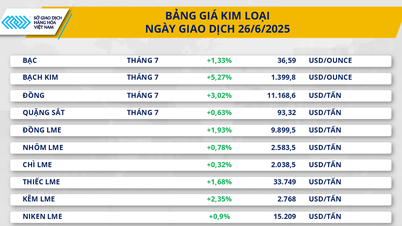






































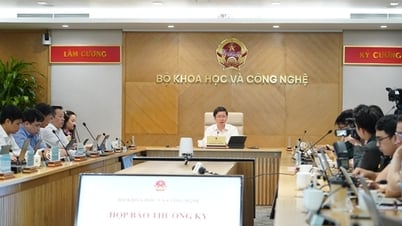







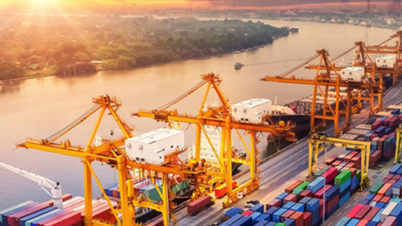
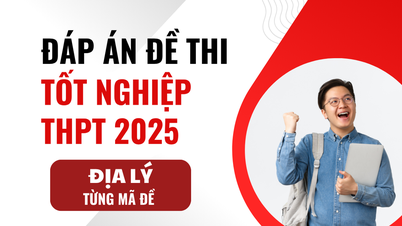
















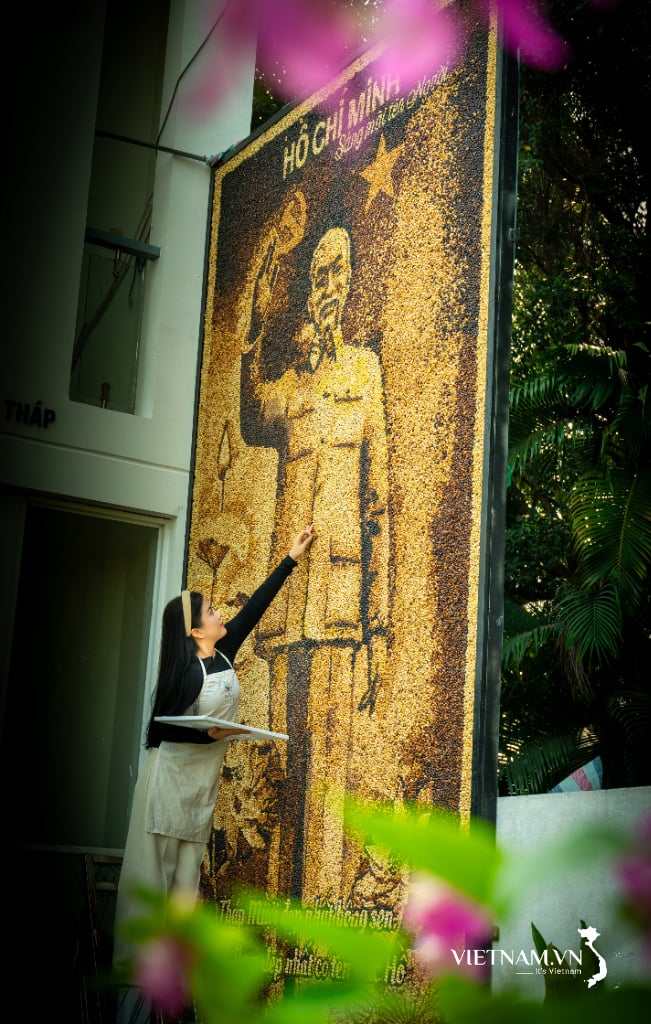

Comment (0)